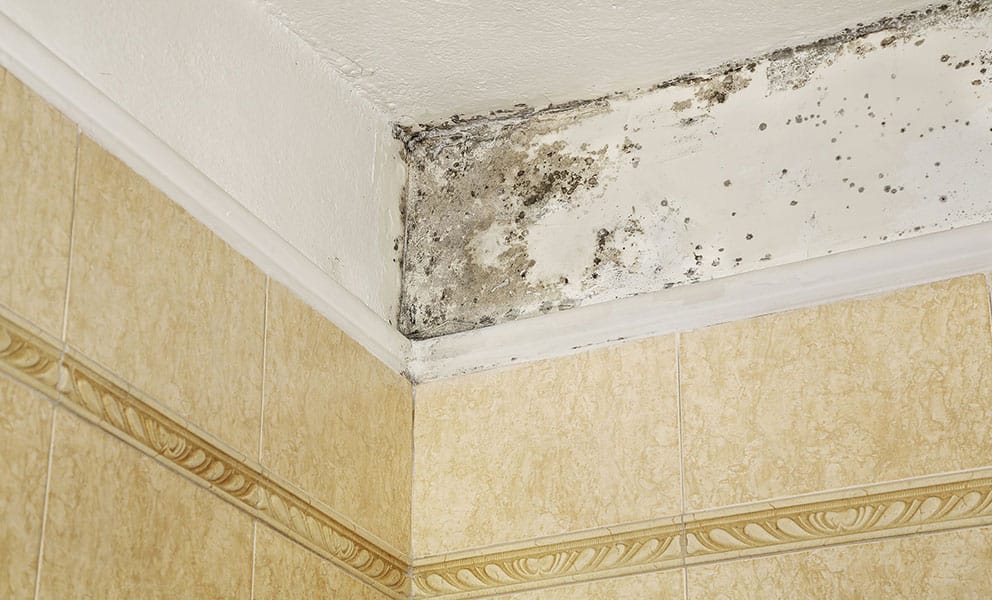Menu

Nobody wants condensation on walls in their bathroom. But for many people, it’s a frustrating reality. Thankfully, there are a few things you can do to reduce its severity and protect your walls, as this post will explore…
If you want to stop condensation on your bathroom walls, it’s best to understand why it’s there in the first place.
Condensation forms when moisture from humid air is drawn to cold surfaces within your home. Humidity (the level of moisture in the air) is increased by activities that release moisture, including showing, bathing and washing your hands in the bathroom – but also boiling a kettle, cooking and drying your washing, elsewhere in the home.
Those high humidity levels are particularly problematic when the moisture can’t escape through windows, doors and other forms of ventilation. That’s when condensation comes into play, with the moisture condensing from a gas into a liquid on the nearest cold surface – which in many cases is your bathroom walls.
The best way to stop condensation on your bathroom walls is by ventilating the space, especially when moisture is being released when bathing or showering. Opening a window will let moisture escape, albeit at a cost to the temperature of the room.
Alternatively, extractor fans – as the name suggests – extract moisture from the air without the need to let cold air in. While opening doors is usually recommended for ventilation, leaving your bathroom door open will simply allow the humidity to spread through your home.
One final note is to keep the space well heated. Turning on your bathroom radiator or towel heater will prevent bathroom walls from becoming particularly cold and drawing that moisture out of the air.
If you’re struggling with condensation on bathroom walls, it only right to be concerned. Condensation can go beyond an eyesore if it’s left ignored. When moisture is constantly attracted to your walls, they will become damp which can lead to permanent stains or even mould. In turn, that will bring its own issues with respiratory problems, allergies and asthma.
If you’ve improved ventilation and your bathroom walls are still attracting condensation, PVC wall panels could be the best option. Because PVC is completely water resistant, it will stop condensation getting to your walls and minimise the chance of damp or mould forming.
Any condensation that does get on your PVC panels can simply be wiped down, and there will be no detriment to their appearance over time.
PVC wall panels are a sure-fire way to end the cycle of decorating and redecorating when condensation damages your walls. At Igloo Surfaces, we offer a 10-20 year guarantee with all of our bathroom wall panels, so you can rest assured they will keep your bathroom walls looking great for years to come.
To find out more, simply contact our team online. Or see for yourself by ordering four samples for just £1.